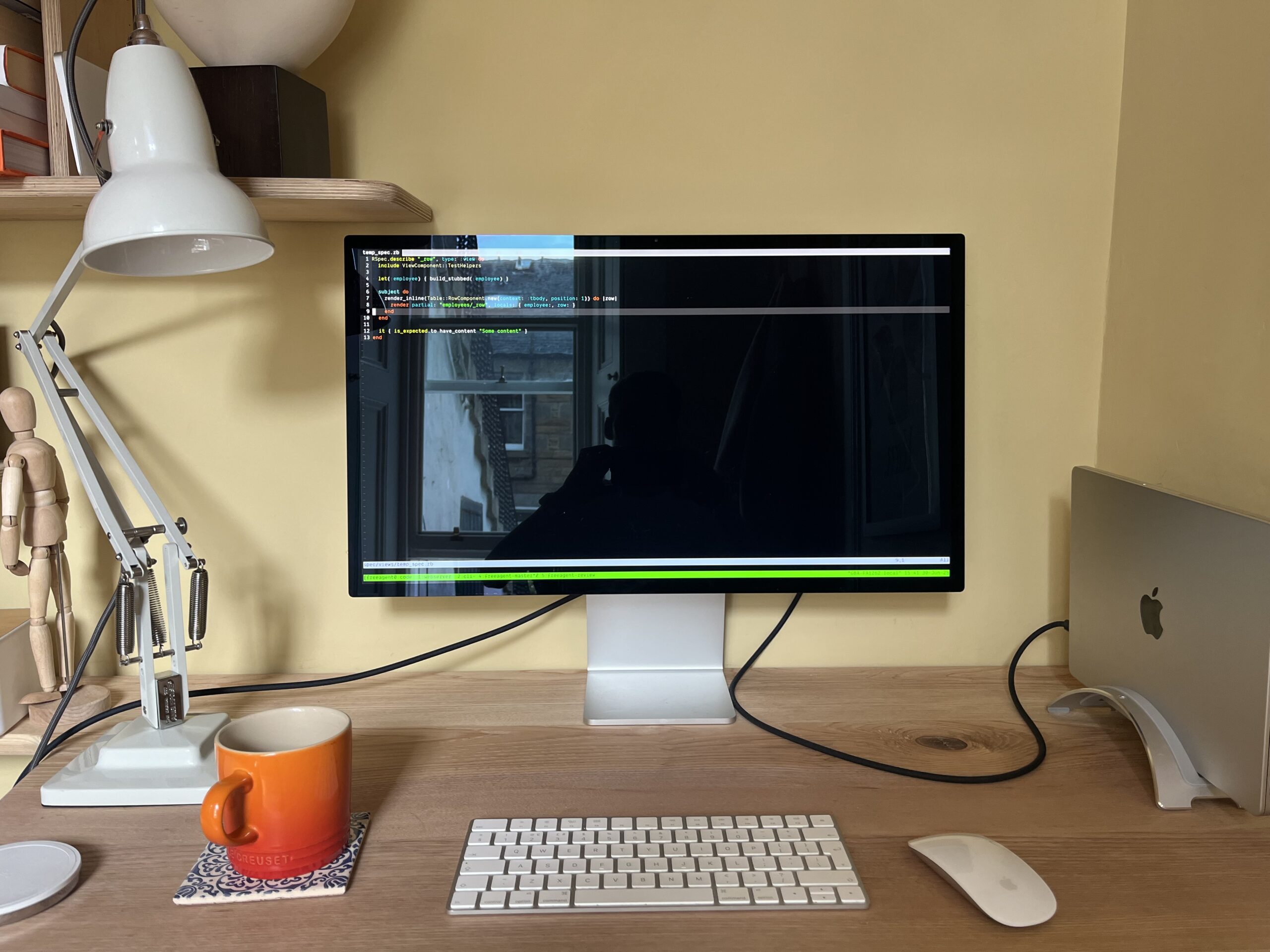
A refreshing take: using serverside rendering to reduce fragile DOM state
Hotwire is central to how we drive the frontend at FreeAgent, and Action Cable allows us to send Turbo Streams as users browse the site, adding a layer of richness to the user experience. Continue reading

Waiting for it with Capybara’s synchronize method
Feature specs are notorious for their potential to flake. It’s possible for the results of feature specs to be inconsistent because they have to deal with asynchronous state. In a typical test environment, there’s a single Ruby process at play, so test code will be executed in order as written – we can reasonably expect one line to complete before the next is executed. But when it comes to feature specs… Continue reading

Wiggling my way to a win
The work calendar At FreeAgent, we work in intervals of sprints (2 weeks) and cycles (which are made up of 4 sprints – adding up to roughly 2 months total). In a cycle a team typically aims to complete 1 larger project, and during a sprint a team aims to complete sub-tasks of that larger project. This helps construct timelines and structure for product managers and engineers to work within. … Continue reading

Uncharted Waters: a guide to exploring unfamiliar codebases
Some companies' codebases are massive. FreeAgent’s, with its monolith Rails application, certainly is no exception. The first time you clone one of these codebases onto your machine and see the sheer number of folders, files and complexity, your eyes might just widen and your jaw may just drop - letting out a yelp. As you click through the first few random files, noticing that you don’t understand a thing and… Continue reading

View specs: rendering templates that are nested within a view component
FreeAgent makes use of the RSpec and ViewComponent frameworks for unit testing and reusable front-end components respectively. Since FreeAgent is a Ruby on Rails application, we’ll often want to write unit tests for our Rails view templates, using RSpec, i.e., a view spec. When rendering our reusable view components in our view templates, especially complex ones, testing can get a bit confusing, especially if the template is dependent on being… Continue reading

State of the browser 2025
State of the Browser is a small, single-track conference in London. I'd been before, and while it always has a great list of speakers, what I'd forgotten was the extremely welcoming and inclusive atmosphere. For example, it's the first conference I've been to with live captioning, and almost every talk had an accessibility section or angle. Additionally, their business model is built on sponsorship, so they're able to give away… Continue reading

Mission jQuery Zero: How FreeAgent removed jQuery from our application
Just over 3 years ago FreeAgent was running with 4 front-end frameworks, Stimulus, React with Redux, Rails UJS and jQuery and we were about to start adding Turbo to the stack. Running all these different frameworks was not sustainable and we chose to reduce our number of dependencies and first up was jQuery. We called this our legendary jQuery code, code that had helped us grow a business and provide… Continue reading

A case of missing validation messages
I’ve recently worked on two very similar issues within the FreeAgent app, which is a Rails web application. The problem that was reported in both cases was that when a user tried to submit invalid data they didn’t get any kind of message indicating what went wrong. In case it helps someone else (and let’s be honest to remind myself when I undoubtedly come across it again) I thought I’d… Continue reading
The five stages of AI tool adoption: a developer’s journey
Do you remember the first time you opened Excel and discovered pivot tables? Or perhaps that moment when you first held a digital camera after years of developing 35mm film? Maybe it was when you wrote your first SQL query and watched data magically arrange itself exactly as you needed it. These technological transitions in our lives often follow a strikingly similar emotional pattern. The initial rush of discovering something… Continue reading

Breaking the coding doom loop: lessons from my intern project
Tell me if this sounds familiar. You get a project idea that you’re excited about, create a new GitHub repository, and dive headfirst into coding. Instead of coming away with your new pride and joy, you end up with just another repo in your archive. Well, this has happened to me too, too many times! With my university projects, I could always produce a good piece of work. But university… Continue reading

